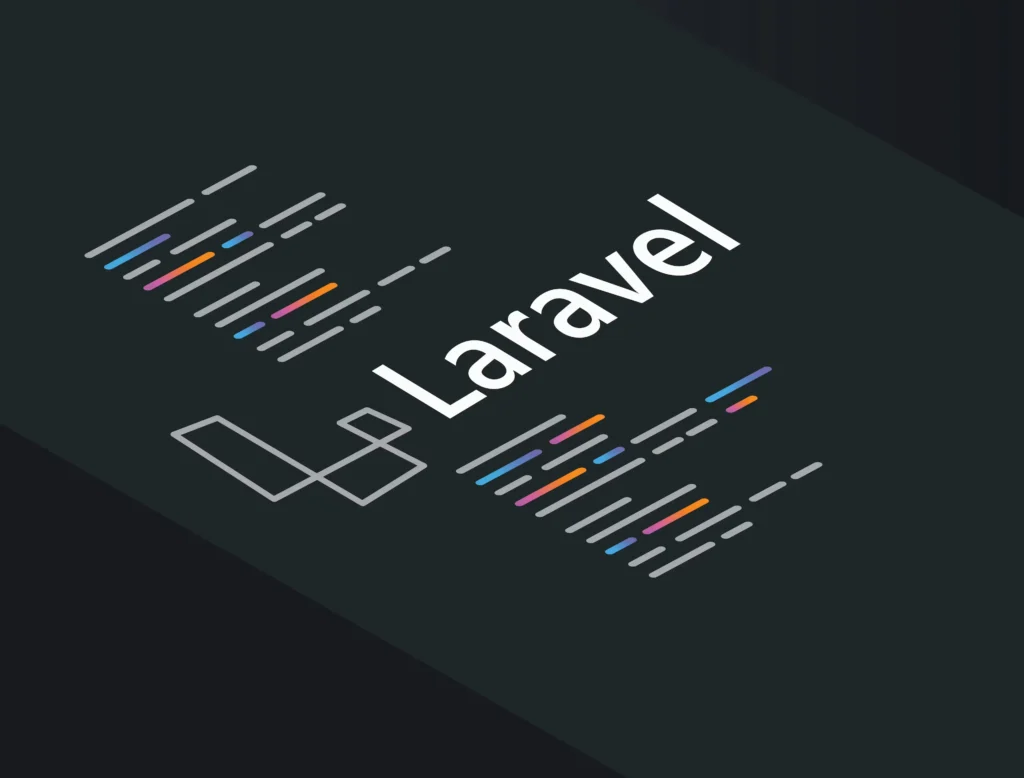Artificial Intelligence (AI) has revolutionized various industries, and Human Resources (HR) is no exception. With the rapid advancements in technology, AI is transforming the traditional recruitment process, offering liberation to both job seekers and employers. This shift has empowered HR professionals to streamline their hiring procedures, making them more efficient and effective. AI algorithms can analyze large amounts of data, identify patterns, and predict candidate suitability, enabling recruiters to make data-driven decisions.
Additionally, AI-powered chatbots and virtual assistants provide round-the-clock support to potential candidates, enhancing their experience and expediting the hiring process. As AI continues to evolve, it is crucial for organizations to embrace this transformative technology and adapt their recruitment strategies accordingly to stay competitive in the job market.
Key Takeaways
- AI in HR is automating tasks and streamlining workflow in the recruitment process.
- It reduces bias in candidate selection and enhances the overall candidate experience.
- AI is analyzing large volumes of data to identify suitable candidates and decreasing the value of traditional resumes.
- While AI improves efficiency and accuracy, it also reduces the human element in HR and lacks empathy in complex situations. Balancing automation and human connection is crucial for an inclusive HR environment.
AI and the Modern Hiring Process
AI has revolutionized the modern hiring process, transforming the way organizations identify and select candidates for vacant positions. With the advent of AI in recruiting, companies now have access to advanced technologies that streamline their hiring efforts, saving time and resources. Artificial intelligence in the hiring process enables organizations to automate tasks such as resume screening, candidate assessment, and interview scheduling. This not only speeds up the recruitment process but also improves its accuracy by eliminating human biases.
AI algorithms can analyze large volumes of data to identify the most suitable candidates based on specific criteria and match them to the job requirements. By incorporating AI in the hiring process, organizations can make more informed decisions, improve the quality of hires, and ultimately create a more diverse and inclusive workforce.
How Is Artificial Intelligence Changing the Recruiting Process?
Artificial intelligence is progressively transforming the recruiting process by significantly enhancing efficiency and effectiveness. With the help of AI, recruiters can streamline their workflow, automate repetitive tasks, and make more informed decisions. One of the key ways AI is changing the recruiting process is through the use of intelligent algorithms to analyze resumes and identify the most qualified candidates. These algorithms can quickly scan through thousands of resumes, saving recruiters valuable time and ensuring that no potential candidates are overlooked.
Additionally, AI-powered chatbots are being used to conduct initial screenings and answer candidate questions, providing a seamless and personalized experience. AI is also improving the candidate experience by reducing bias in the hiring process and offering unbiased assessments based on skills and qualifications. Overall, AI is revolutionizing recruitment by making it faster, fairer, and more efficient.
How Is AI Changing Human Resources?
As artificial intelligence (AI) continues to transform human resources, one notable change is the decreasing value of resumes. With AI algorithms able to quickly scan and evaluate candidates, traditional resumes are becoming less important in the hiring process. However, this shift towards AI raises concerns about the potential loss of humanity in human resources, as personal connections and subjective judgments may be overshadowed by data-driven decisions.
A Decrease in the Value of Resumes
The increasing integration of artificial intelligence technology in HR has led to a diminishing emphasis on the importance of resumes in the recruitment process. AI-powered algorithms are now able to analyze vast amounts of data and identify the most suitable candidates based on their skills, qualifications, and experience. This shift in focus from resumes to data-driven decision-making brings liberation to both employers and job seekers.
Employers are no longer solely reliant on resumes, which can be subjective and biased, and can now make more objective hiring decisions. Job seekers, on the other hand, have the opportunity to showcase their skills and potential beyond what can be captured on a traditional resume. This liberation allows employers to find the best fit for their organizations and empowers job seekers to be evaluated on their true abilities, fostering a more equitable and inclusive recruitment process.
Less Humanity in Human Resources?
A significant reduction in the human element of human resources is evident as a result of the integration of artificial intelligence technology. While AI has brought numerous benefits to HR, such as increased efficiency and improved decision-making, it has also raised concerns about the loss of human touch in the recruitment process. The adoption of AI-powered systems has led to a more automated and impersonal approach to HR, potentially diminishing the role of human interaction and empathy.
To better understand the impact of AI on human resources, let’s examine the key changes that have occurred:
| Positive Changes | Challenges |
|---|---|
| Streamlined processes | Reduced personal connection |
| Improved accuracy and objectivity | Potential bias in algorithms |
| Enhanced decision-making | Limited ability to handle complex situations |
| Increased efficiency | Lack of empathy and emotional intelligence |
As AI continues to evolve, striking a balance between the benefits of automation and the need for human connection will be crucial in maintaining a liberated and inclusive HR environment.
3 Ways to Keep the Hiring Process While Using AI
When incorporating AI into the hiring process, it is essential to establish clear policies that outline its role and limitations. These policies should address issues such as the use of AI in candidate screening, decision-making criteria, and the involvement of human resources personnel throughout the process. Additionally, efforts must be made to ensure that AI systems are free from biases, as they can inadvertently perpetuate discrimination and hinder diversity in the workforce. Ultimately, it is crucial to recognize that AI is an assistive tool and that the human resources team remains at the core of the hiring process, providing oversight and expertise.
Plan Policies Regarding AI in the Recruiting and Hiring Process
Employers should establish clear guidelines and protocols for the integration of AI in the recruiting and hiring process to ensure a smooth and efficient transition. As AI continues to revolutionize the HR industry, organizations must plan policies that address the ethical and legal implications of using AI in hiring decisions. These policies should outline how AI technologies will be used, what data will be collected, and how it will be protected and secured.
Additionally, organizations should consider the potential biases that AI algorithms may introduce and develop strategies to mitigate them. Transparency and accountability should be prioritized, with clear communication to candidates about the use of AI and the role it plays in the decision-making process. By setting these policies, employers can strike a balance between leveraging AI’s capabilities and maintaining a fair and inclusive hiring process.
Work to Eliminate Human Biases from AI Systems
Organizations must prioritize the eradication of human biases from AI systems to maintain a fair and objective hiring process while utilizing AI technology. By eliminating human biases, organizations can ensure that candidates are evaluated solely based on their qualifications and abilities rather than factors such as gender, ethnicity, or age. To achieve this, several strategies can be implemented. First, organizations should carefully select and train the data sets used to train AI algorithms, ensuring they are diverse and representative.
Additionally, regular audits and evaluations of AI systems should be conducted to identify and address any biases that may arise. It is also essential to involve a diverse group of stakeholders in the development and implementation of AI systems to provide different perspectives and prevent biases from being perpetuated. Ultimately, by actively working to eliminate human biases from AI systems, organizations can create a more inclusive and equitable hiring process.
| Strategies to Eliminate Biases from AI Systems | Benefits |
|---|---|
| Careful selection and training of data sets | Ensures diversity and representation |
| Regular audits and evaluations of AI systems | Identifies and addresses biases |
| Involvement of diverse stakeholders | Prevents biases from being perpetuated |
| Creation of a more inclusive and equitable hiring process | Promotes fairness and equality |
Human Resources Team Is the Core of Hiring and That AI Is Just an Assistive Tool
To maintain the integrity of the hiring process while incorporating AI technology, it is crucial to recognize that the Human Resources team serves as the primary decision-making entity, with AI acting as an assistive tool. While AI can streamline and enhance various aspects of recruitment, it is important to remember that it is just a tool and not a replacement for human judgment and intuition. The HR team plays a vital role in evaluating candidates, assessing cultural fit, and making final hiring decisions.
AI can assist by automating routine tasks, analyzing large volumes of data, and identifying patterns. However, ultimate decision-making power should rest with the HR team, ensuring that the hiring process remains fair, inclusive, and aligned with the organization’s values. By leveraging AI as an aid, HR professionals can make more informed decisions, saving time and resources while maintaining the human touch that is essential in hiring.
What Is Next on the Horizon for AI in Recruiting and Hiring?
As AI continues to revolutionize the recruitment and hiring process, the next horizon for AI in this field lies in developing an improved overall hiring funnel. By leveraging AI technology, companies can optimize their hiring process from start to finish, ensuring a seamless and efficient experience for both candidates and hiring managers. Additionally, AI can help organizations allocate their hiring budgets to the best channels, enabling them to gain the most exposure and attract top talent.
Developing an Improved Overall Hiring Funnel
The implementation of artificial intelligence (AI) in HR is revolutionizing the recruitment process by enhancing the development of an improved overall hiring funnel. AI technologies are being used to streamline and automate various stages of the hiring process, resulting in increased efficiency and effectiveness. By leveraging AI-powered tools, recruiters can now identify and attract top talent more easily, screen candidates more accurately, and make data-driven decisions throughout the hiring process.
AI also helps in eliminating biases and promoting diversity and inclusion in hiring. Moreover, AI can assist in creating a positive candidate experience by providing personalized recommendations and timely feedback. Overall, the integration of AI in the hiring funnel is transforming recruitment practices and paving the way for a more efficient and inclusive hiring process.
Allocating the Budget to the Best Channels to Gain the Most Exposure
Moving forward, HR professionals will increasingly utilize artificial intelligence (AI) to efficiently allocate their budget to the most effective channels for gaining maximum exposure in recruitment and hiring processes. AI technology can analyze vast amounts of data to identify the most cost-effective and impactful advertising platforms, job boards, and social media channels. By utilizing AI, HR professionals can optimize their recruitment budget by targeting the right candidate pools and reducing spending on ineffective channels.
AI algorithms can also provide real-time insights into the performance of different advertising channels, allowing HR professionals to make data-driven decisions. This approach ensures that the budget is allocated to the channels that yield the best results, ultimately enhancing the company’s recruitment efforts and saving valuable resources. As AI continues to evolve, HR professionals can expect even more sophisticated tools and strategies for budget allocation, further revolutionizing the recruitment and hiring processes.
Frequently Asked Questions
What Are the Potential Ethical Concerns Associated With Using AI in the Recruitment Process?
Potential ethical concerns associated with using AI in the recruitment process include bias in algorithms, lack of transparency in decision-making, privacy concerns, and the potential for discrimination. These issues necessitate careful consideration and regulation to ensure fairness and accountability.
How Can AI Improve the Diversity and Inclusion Efforts in Hiring?
AI has the potential to improve diversity and inclusion efforts in hiring by reducing unconscious bias in the recruitment process. It can analyze large data sets objectively, identify patterns of bias, and provide recommendations for more inclusive hiring practices.
What Are the Limitations of AI in HR and How Can They Be Mitigated?
The limitations of AI in HR include potential bias, lack of human judgment, and data privacy concerns. To mitigate these, organizations can ensure transparency, regularly monitor and audit AI systems, and involve human oversight in decision-making processes.
How Can HR Professionals Ensure the FAIrness and Transparency of AI Algorithms Used in the Recruitment Process?
HR professionals can ensure fairness and transparency of AI algorithms used in recruitment by regularly auditing and monitoring the algorithms, ensuring they are free from biases, providing clear explanations of decisions made, and involving diverse teams in the development and testing process.
What Are Some of the Challenges Faced by Organizations in Implementing AI in Their Hiring Processes?
Some challenges faced by organizations in implementing AI in their hiring processes include ensuring data privacy, avoiding bias in algorithm design, and addressing employee concerns about job security and ethical implications.
Conclusion
In conclusion, the integration of artificial intelligence into the HR sector has revolutionized the recruitment process. AI technologies have enhanced efficiency, accuracy, and objectivity in candidate screening and selection. Additionally, AI has transformed human resources by automating administrative tasks and providing data-driven insights for decision-making. To ensure a successful implementation of AI in hiring, organizations should maintain a human touch, ensure transparency, and prioritize ethical considerations. The future of AI in recruiting and hiring holds promising advancements that will continue to reshape the HR landscape.




